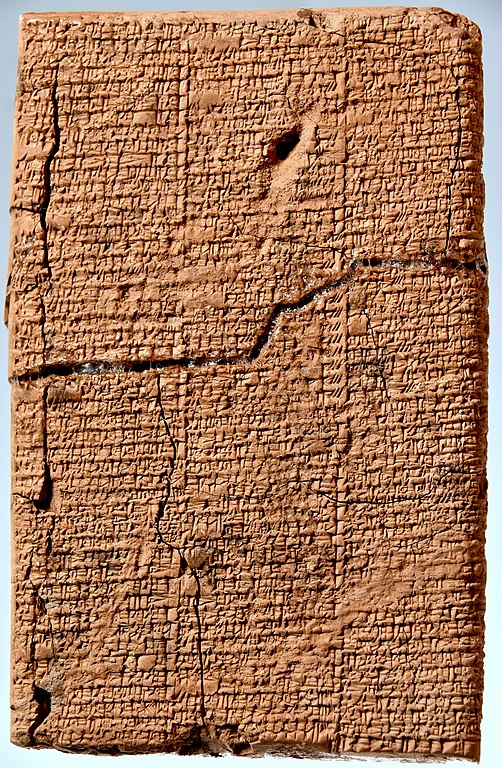
| LUGALBANDA
The story of Lugalbanda in the Mountain Cave, Old-Babylonian period, from southern Iraq. Sulaymaniyah Museum, Iraqi Kurdistan King
of the First dynasty of Uruk
Regnal titles of Lugalbanda : Ruler of Sumer and King of Uruk
Lugalbanda was a deified Sumerian king of Uruk who, according to various sources of Mesopotamian literature, was the father of Gilgamesh. Early sources mention his consort Ninsun and his heroic deeds in an expedition to Aratta by King Enmerkar.
Lugalbanda is listed in the Sumerian King List as the second king of Uruk, saying he ruled for 1200 years, and providing him with the epithet of the Shepherd. Lugalbanda's historicity is uncertain among scholars. Attempts to date him in the ED II period are based on an amalgamation of data from the epic traditions of the 2nd millennium with unclear archaeological observations.
Mythology
:
There's evidence suggesting the worship of Lugalbanda as a deity originating from the Ur III period, as attested in tablets from Nippur, Ur, Umma and Puzrish-Dagan. In the Old Babylonian period Sin-kashid of Uruk is known to have built a temple called É-KI.KAL dedicated to Lugalbanda and Ninsun, and to have assigned his daughter Niši-ini-šu as the eresh-dingir priestess of Lugalbanda.
At the same time, Lugalbanda would prominently feature as the hero of two Sumerian stories dated to the Third Dynasty of Ur, called by scholars Lugalbanda I (Lugalbanda in the Mountain Cave) and Lugalbanda II (Lugalbanda and the Anzu Bird). Both are known only in later versions, although there is an Ur III fragment that is quite different from either 18th century version.
These tales are part of a series of stories that describe the conflicts between Enmerkar, king of Uruk, and Ensuhkeshdanna, lord of Aratta, presumably in the Iranian highlands. In these two stories, Lugalbanda is a soldier in the army of Enmerkar, whose name also appears in the Sumerian King List as the first king of Uruk and predecessor of Lugalbanda. The extant fragments make no reference to Lugalbanda's succession as king following Enmerkar.
In royal hymns of the Ur III period, Ur-Nammu of Ur and his son Shulgi describe Lugalbanda and Ninsun as their holy parents, and in the same context call themselves the brother of Gilgamesh. Sin-Kashid of Uruk also refers to Lugalbanda and Ninsun as his divine parents, and names Lugalbanda as his god.
In the Epic of Gilgamesh and in earlier Sumerian stories about the hero, Gilgamesh calls himself the son of Lugalbanda and Ninsun. In the Gilgamesh and Huwawa poem, the king consistently uses the assertive phrase: “By the life of my own mother Ninsun and of my father, holy Lugalbanda!”. In Akkadian versions of the epic, Gilgamesh also refers to Lugalbanda as his personal god, and in one episode presents the oil filled horns of the defeated Bull of Heaven "for the anointing of his god Lugalbanda".
Source
: |
